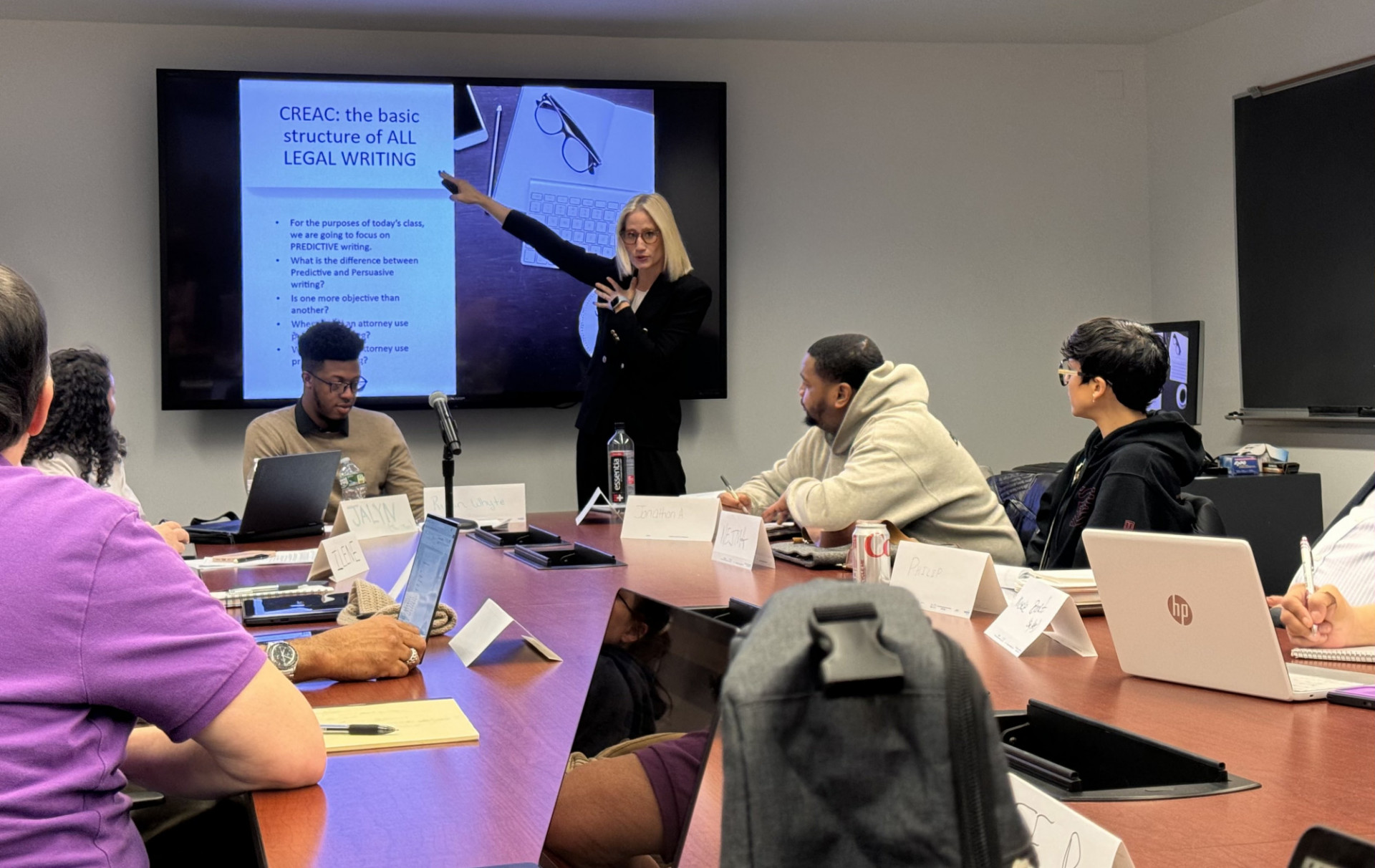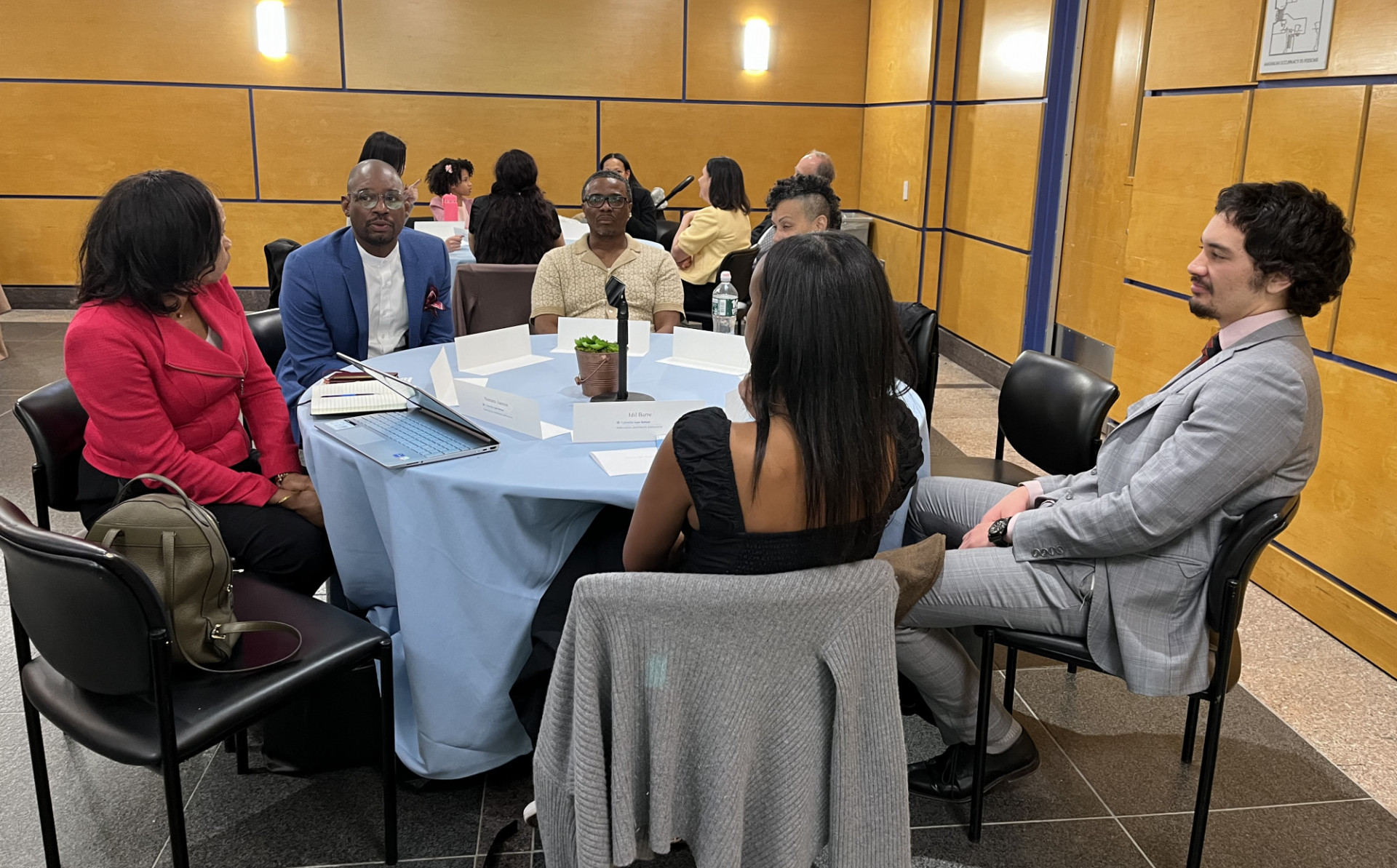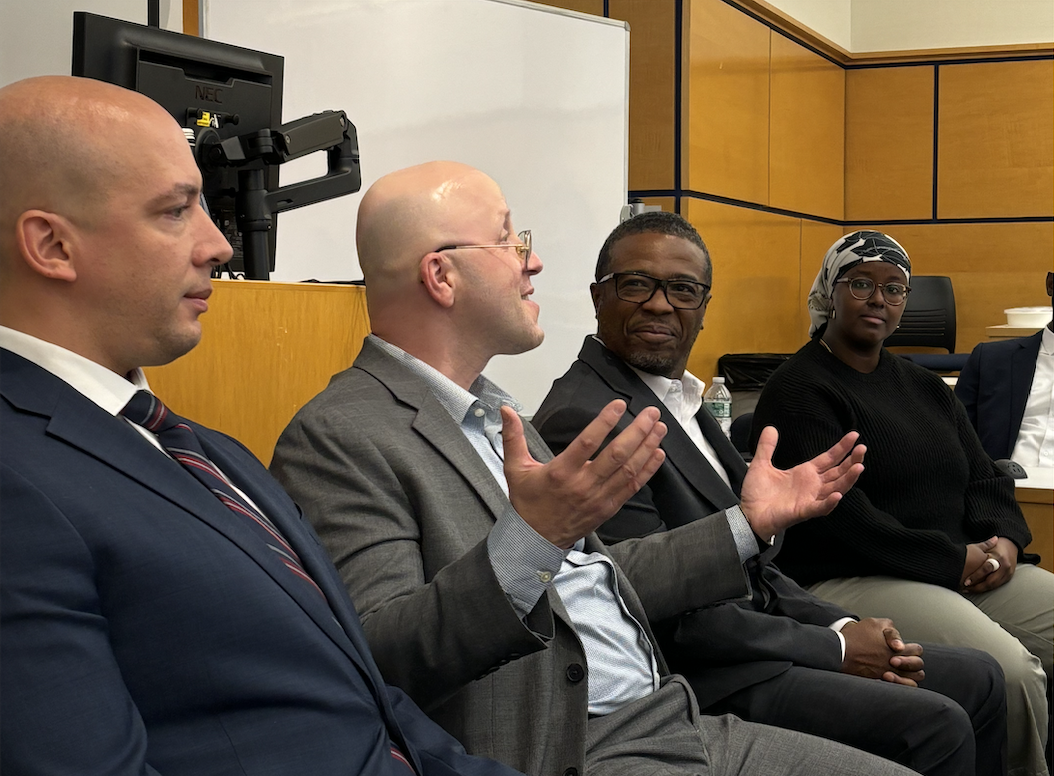By: Rosy Araujo, CLS '26
April 25, 2025
The Paralegal Pathways Initiative (PPI) continues to support formerly incarcerated individuals as they build careers in the legal field. For PPI alumni Harold Lopez and Cynthia Williams, the program offered not just practical training, but a community with endless resources.
Harold entered the 2023 cohort with years of paralegal experience. Even so, PPI taught him new skills and gave him insight into what legal work looks like in a formal office environment since he had previously worked remotely. “The way the classes were structured helped me better understand how things actually function day to day,” he said. “Even as someone with some legal experience, I learned a lot.” Since completing the program, Harold has been applying to legal jobs while working to launch his own business.
Cynthia joined PPI in 2024 as an independent paralegal. Like Harold, Cynthia had legal experience but still found PPI to be informative and a great experience. Cynthia says that she “appreciated hearing from instructors and other participants. It was inspiring to see what was possible.” Cynthia has stayed active since finishing the program, contributing to the Jailhouse Lawyers Manual and continuing her advocacy work.
For both participants, PPI was a chance to broaden their skills and learn from instructors and their peers. But most of all, it was a reminder that they’re not alone in this work. As Cynthia put it, “Just seeing others who’ve gone through something similar and are still pushing forward—that keeps you going.” PPI continues to support alumni like Harold and Cynthia as they continue their legal journeys.
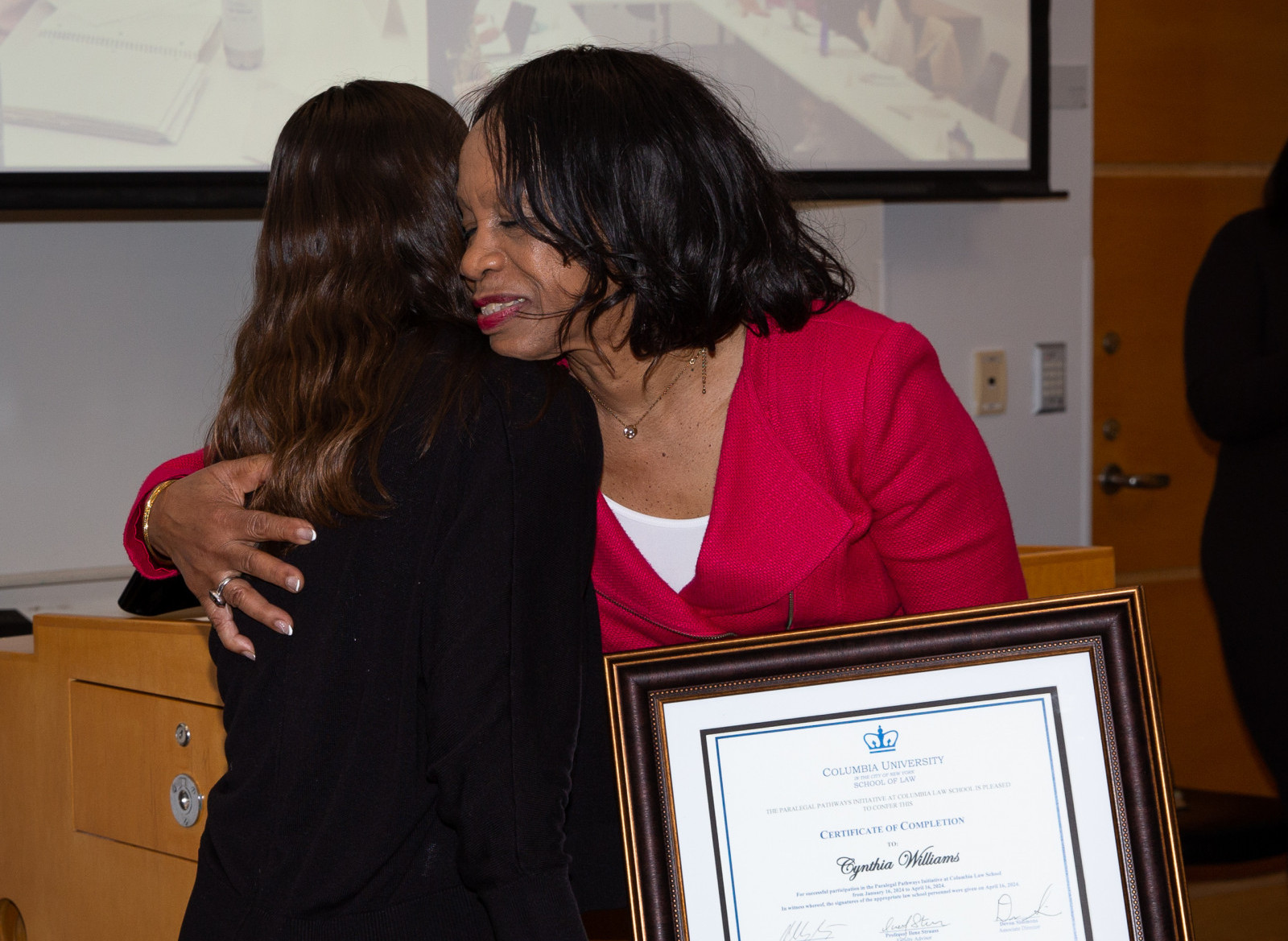
By: Cat Tran, CLS '25
In criminal justice reform, the intersection of cultural heritage and advocacy for justice-impacted individuals can play a pivotal role in shaping a more equitable system. Te Maiora Rurehe, a New Zealand Māori lawyer deeply engaged in indigenous rights legal advocacy, has dedicated himself to addressing issues such as the disproportionate incarceration of Māori individuals, systemic biases within the legal system, and the cultural disconnect experienced by indigenous communities.
As a student at Elisabeth Haub School of Law at Pace University, Te Maiora is currently studying environmental law and is set to graduate in May 2024. Through spearheading Taiōnuku Ltd. and advocating for a more culturally sensitive approach to incarceration, Te Maiora's mission resonates strongly with our goals at PPI. His connection with PPI Co-Founder Devon Simmons underscores the universality of shared struggles, spanning from New Zealand to the US. These struggles encompass issues such as mass incarceration, racial disparities, and the legacies of colonialism, highlighting the importance of cross-cultural dialogue and solidarity in the pursuit of justice reform.
Te Maiora's journey into legal advocacy began after witnessing the impact of incarceration on a friend and within his indigenous communities. The ethos of Taiōnuku Ltd. centers on a metaphor of “lightning striking on a mountaintop.” This imagery evokes the transformative power of cultural revitalization, symbolizing an emphasis towards rehabilitation and healing after incarceration. Te Maiora's vision for Taiōnuku centers on creating spaces where cultural identity serves as a catalyst for change. Like PPI's mission in promoting reintegration for justice-impacted individuals through economic empowerment, Taiōnuku’s mission focuses on addressing recidivism through a holistic lens by placing individuals in the right circumstances to break the cycle of incarceration and promoting positive societal integration. His research currently centers on producing data to show that cultural initiatives in prison are effective in promoting the health of incarcerated people and lowering recidivism rates. He further envisions this research serving as the foundation for a reimagined justice system around the world.
By integrating indigenous perspectives into the discourse on prison reform, Te Maiora aims to develop an approach that bridges non-western philosophy with historically dominant Western-based frameworks. Moreover, by incorporating these perspectives into environmental and justice issues, we can recognize the diversity of societies and embrace alternative operational frameworks. Nevertheless, Te Maiora describes his ultimate vision as bringing love to prison and incarceration institutions, envisioning a future where individuals are not subjected to prison sentences, but can rather engage in alternative pathways towards healing.
Through incorporating the views and experiences of those directly impacted by incarceration, Taiōnuku seeks to amplify marginalized voices in the quest for justice reform. Through Te Maiora’s ongoing efforts to secure funding and build partnerships with community organizations, he is laying the groundwork for a more inclusive and culturally sensitive approach to prison reform—a journey that aligns closely with PPI's commitment to grassroots advocacy and community empowerment for justice-impacted individuals.
In histories marked by systemic injustices and cultural disconnect, Te Maiora's work serves as a beacon of hope for a more just and compassionate legal system. By bridging the gap between indigenous perspectives and mainstream legal advocacy, he is paving the way for a more inclusive and equitable approach to justice. Te Maiora's vision extends beyond national borders, offering valuable insights that can be applied on an international scale. As he continues to advocate for cultural sensitivity in legal advocacy, Te Maiora embodies the spirit of collaboration and empowerment at the heart of PPI's mission.
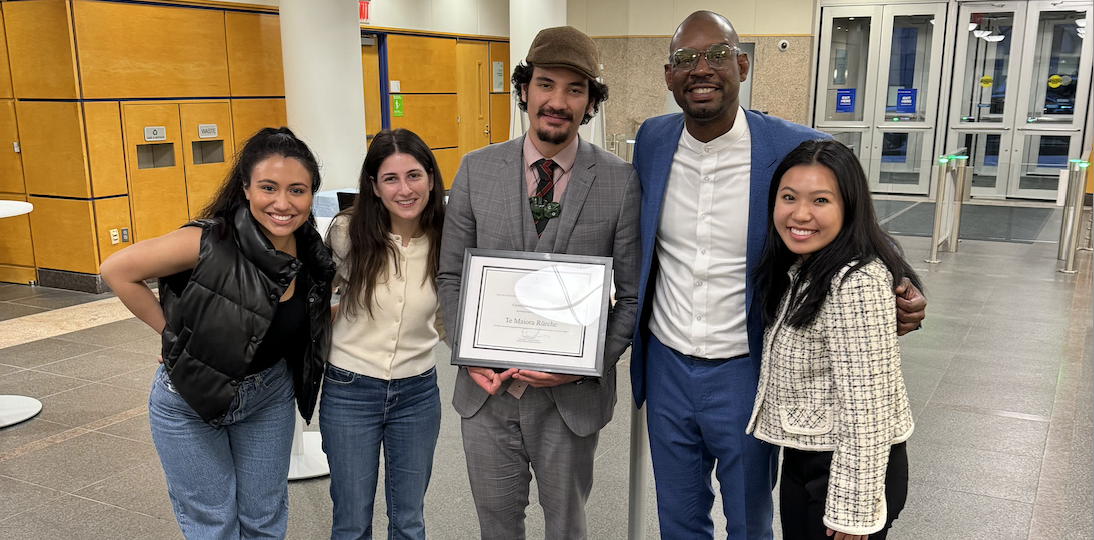
Devon Simmons served 15 years in prison for crimes he committed as a teenager. Since then, he’s been on a mission to remake not just his own life, but the legal system itself.
Harlem native Devon Simmons spent 15 years in prison, and rather than letting that time dictate the path his life would take, he was determined to use that experience to help others find a better path forward. He went on to graduate from college and co-founded a group that creates opportunities for formerly incarcerated people often in the legal field, and has won several prestigious awards along the way. Simmons joins Yodit Tewolde on “Making the Case” to talk about his story using a negative experience and turning it into a positive. All this and more on “Making the Case.”
If you were not able to join us and would like to view the video recording of the webinar, you can do so here.
Leading international law firm Clifford Chance has named Columbia Law School's Center for Institutional and Social Change as the winner of its Racial Justice Award. The organization, which is based in New York, will receive a £50,000 (US$70,000) donation and 500 hours of pro bono support over an 18 month period supporting its Paralegal Pathways Initiative, responding to the persistent racial injustice in the United States' criminal legal system.

